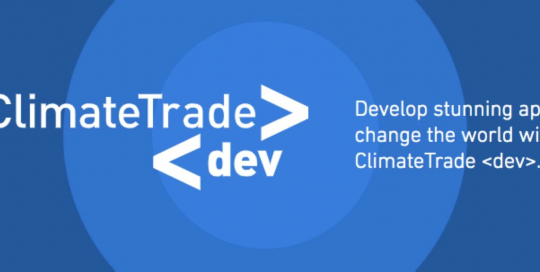Understand how this technology brings innovation and transparency to the carbon market.
In the Kyoto protocol (1997) signing countries agreed to limit the emissions of six greenhouse gases, here is where carbon credits were born. This meant that polluting companies, instead of paying taxes to the governments, could pay directly to the companies which generate those credits.
Likewise any traditional market, brokers started to speculate and get most of the profit, preventing money from reaching the green projects and hence hindering their development. This not only left unprotected carbon credit sellers but also buyers who could be sold the same credit several times (due to the lack of transparency and traceability of the carbon credits cancellation mechanism).
The problem as it usually happens was that the market was centralized in the hands of traditional brokers, who used to manage their own databases which can be manipulated at their own discretion, being able to write, change, delete and restrict access or other actions. The process also becomes more expensive, lengthy and tedious, discouraging many companies from buying / selling carbon credits.
ClimateTrade brings this situation to an end, allowing companies and project developers to benefit from blockchain technology.
Blockchains are distributed ledgers which replicate the data across the different nodes involved in the network.That is, instead of being centralized on a single server, the information is decentralized on different computers, each saving its own copy. This prevents any record from being changed or deleted, since it only allows adding new data, thus preventing data from being altered or manipulated.
The information on a public blockchain is accessible to everyone and visible on any block explorer, facilitating the traceability and transparency of canceled carbon credits. Neither ClimateTrade, nor the creators of the blockchain itself could alter the information since all nodes have replicas of the data and are required to follow the consensus algorithm, which ensures the immutability of the data stored in them.
The consensus algorithm used in the blockchains we work with is Proof of Stake. The first blockchains are Proof of Work (Bitcoin and Ethereum 1.0) which involves spending huge amounts of energy to produce new blocks and concentrate the power in the hands of a few miner pools.
On the contrary, the Proof of Stake allows to process a greater number of transactions per second, decentralizing the rewards per block to anyone who operates the blockchain token together with a laptop or mobile connected to validate the blocks, thus saving on fees and reducing the environmental impact in more than 99%.
To go further in the process of automation, ClimateTrade created a REST API available to company developers who wish to integrate this innovative system. This allows the incorporation of already existing projects called from this API into its code, thus offsetting the carbon footprint generated in their business processes.







